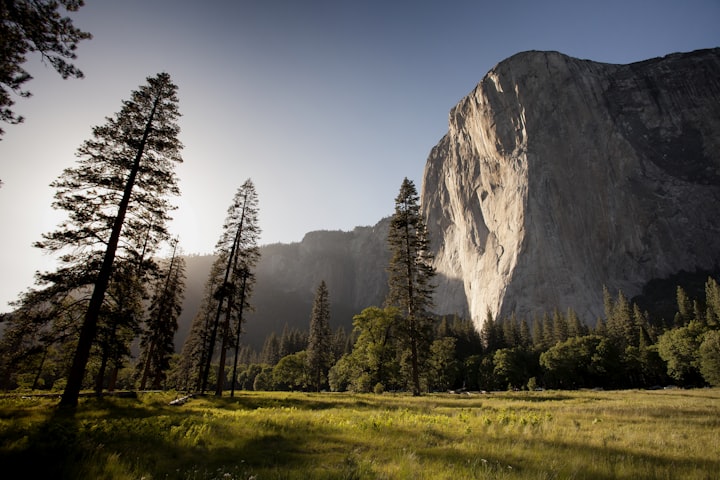PLACES THAT WILL BE DOOMED IF GLOBAL WARMING ISN’T CONTAINED
Global warming climate change

Global warming stands as a paramount environmental concern of our era. The escalating temperatures are leading to the vanishing of cherished natural habitats and beloved iconic sites. Regrettably, numerous breathtaking locations across the globe face the grim prospect of extinction due to the impact of global warming. Below, we highlight eight such places that might confront significant threats in the coming decades.
Global warming refers to the long-term increase in Earth's average surface temperature due to the accumulation of greenhouse gases in the atmosphere, primarily caused by human activities such as burning fossil fuels and deforestation. This phenomenon has far-reaching impacts on weather patterns, sea levels, ecosystems, and various aspects of the environment.
Global warming has led to various places around the world being significantly affected. Some examples include the melting Arctic ice, causing habitat loss for polar bears and other species; the bleaching of coral reefs due to warmer oceans; rising sea levels threatening coastal cities; increased frequency of heatwaves in regions like Europe; and shifts in agricultural zones impacting crop production. These are just a few instances of the wide-ranging effects of global warming on different geographical areas.
Global warming is a phenomenon characterized by the long-term increase in Earth's average surface temperature. This rise in temperature is primarily attributed to the release of greenhouse gases, such as carbon dioxide and methane, into the atmosphere. Human activities like burning fossil fuels (coal, oil, and natural gas), deforestation, and industrial processes have significantly contributed to the buildup of these gases.
Greenhouse gases trap heat in the atmosphere, creating a "greenhouse effect." While some level of this effect is necessary for maintaining a habitable climate, the excessive accumulation of greenhouse gases has led to an enhanced greenhouse effect, causing Earth's temperature to increase at an accelerated rate.
The consequences of global warming are far-reaching and include:
1. *Melting Ice:* Rising temperatures lead to the melting of glaciers and polar ice caps, contributing to rising sea levels and threatening the habitats of various species.
2. *Sea Level Rise:* As ice melts and seawater expands due to higher temperatures, sea levels are rising, posing a significant risk to coastal cities and communities.
3. *Extreme Weather Events:* Global warming intensifies the frequency and severity of extreme weather events, such as hurricanes, droughts, floods, and heatwaves.
4. *Biodiversity Loss:* Many species struggle to adapt to the changing climate, leading to shifts in ecosystems and potential extinctions.
5. *Ocean Acidification:* Increased carbon dioxide levels lead to higher acidity in oceans, harming marine life and ecosystems, particularly coral reefs.
6. *Impact on Agriculture:* Changing temperature and precipitation patterns can affect crop yields and agricultural productivity.
7. *Human Health:* Heat-related illnesses and the spread of diseases carried by insects can increase with higher temperatures.
Addressing global warming requires international cooperation to reduce greenhouse gas emissions, transition to renewable energy sources, promote sustainable land use, and implement conservation and adaptation strategies. The Paris Agreement, an international treaty signed by numerous countries, aims to limit global warming to well below 2 degrees Celsius above pre-industrial levels to avoid the most severe impacts.
The list of places that will be doomed are as follow.
The Maldives comprise a collection of islands situated in the Indian Ocean, having gained substantial popularity as a sought-after tourist spot in recent times. Nonetheless, owing to its low-lying geography, the region remains exceptionally susceptible to escalating sea levels attributed to global warming. According to scientific projections, by the close of this century, there's a possibility that the Maldives might be entirely engulfed, rendering it unsuitable for human habitation and wildlife survival alike.
New York City, famed for its Times Square, Broadway, and an array of captivating landmarks, holds a place as one of the planet’s most iconic and densely populated metropolises. Regrettably, it stands among the most susceptible to the repercussions of global warming. The city’s coastal zones, situated at lower elevations, confront the menace of flooding due to the ascent of sea levels. Moreover, heightened occurrences of intense weather events, including hurricanes, heatwaves, and torrential downpours, are increasingly recurrent and severe. Should immediate measures not be taken to curtail carbon emissions, New York City’s future could be in jeopardy.
Venice, renowned for its exquisite beauty and rich history, stands as a peerless city globally, celebrated for its canals, bridges, and architectural marvels. Nevertheless, the peril posed by ascending sea levels and intensifying weather extremes, triggered by global warming, casts a shadow over this distinct urban treasure. The city's gradual descent, combined with the escalating frequency and severity of high tide floods, necessitates urgent attention. Failing to safeguard Venice may result in the unfortunate possibility of this iconic city succumbing to the waters and vanishing from sight.
Timbuktu, situated in Mali, West Africa, holds historical significance as a hub of knowledge and commerce. Nevertheless, the city's narrative has taken a somber turn due to the progression of Sahara desertification and climbing temperatures. This has culminated in a severe scarcity of water. The city's constrained water resources, coupled with the onset of harsh weather occurrences like sandstorms and droughts, paint a precarious picture. The prospect of Timbuktu's gradual decline and possible disappearance looms ominously.





Comments
There are no comments for this story
Be the first to respond and start the conversation.